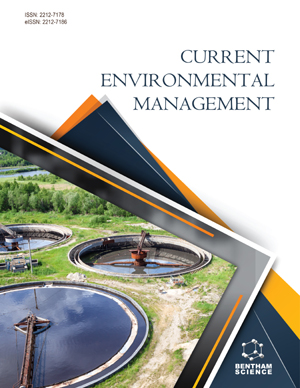Abstract
Taking Iran as the 7th Greenhouse Gas (GHG) emission source of the world, the country contains a high potential for the emission management plans and studies. As the economy is a significant factor in the greenhouse gas emission, studying the economy and GHG emission integrated relations must be taken into account of every climate change and environmental management plan. This paper investigates the relationships among the economic, demographic, foreign policies, and many other domestic and foreign parameters, which are illustrated by sixth Iranian document over development and GHG emission in three progress scenarios made for this plan. In this paper, all the significant GHG emissions such as CO2, SO2, NOx, hydrocarbons, and CO in the period of 2014-2020 are being studied. As the results show, the number of emissions is directly related to domestic and foreign parameters, which means a better economic status in Iran causes an increase in the number of emissions. The foreign policies are more effective in the Iranian economy and emissions than the domestic policies and parameters. The scenarios and the results show that the Iranian economy and energy systems have a significant potential for efficiency development plans. However, one thing is clear that Iranian emissions will be increased to 800 million tons by the end of the plan period (by 2021). This significant increase in the amount indicates the importance of optimization and efficiency development plans in Iran, which is predicted to control and fix this increment around 3-4%.
Keywords: Energy policy, greenhouse gas, economy and environment, scenario planning, climate change, global warming.
Graphical Abstract
[http://dx.doi.org/10.1016/j.energy.2014.11.055.]
[http://dx.doi.org/10.1016/j.energy.2017.04.108.]
[http://dx.doi.org/10.1016/j.enpol.2010.10.008.]
[http://dx.doi.org/10.1016/j.enpol.2012.02.016.]
[http://dx.doi.org/10.1016/j.enpol.2012.03.016.]
[http://dx.doi.org/10.1016/j.apenergy.2012.10.027.]
[http://dx.doi.org/10.1016/j.enpol.2012.02.067.]
[http://dx.doi.org/10.1016/j.enpol.2009.07.001.]
[http://dx.doi.org/10.1016/j.enpol.2010.01.036.]
[http://dx.doi.org/10.1016/j.enpol.2010.10.008.]
[http://dx.doi.org/10.1016/j.apenergy.2014.01.026.]
[http://dx.doi.org/10.1016/j.energy.2015.01.058.]
[http://dx.doi.org/10.1016/j.enpol.2013.01.026]
[http://dx.doi.org/10.1016/j.rser.2013.03.043]
[http://dx.doi.org/10.1111/opec.12155]
[http://dx.doi.org/10.1111/opec.12163]
[http://dx.doi.org/10.1111/1468-0076.00121]
[http://dx.doi.org/10.1111/j.1753-0237.2009.00157.x]
[http://dx.doi.org/10.1111/opec.12118]
[http://dx.doi.org/10.1111/opec.12021]
[http://dx.doi.org/10.1111/opec.12050]
[http://dx.doi.org/10.1016/j.wen.2020.10.001]
[http://dx.doi.org/10.1016/j.petrol.2019.106827.]
[http://dx.doi.org/10.1016/j.energy.2020.119377]]
[http://dx.doi.org/10.1016/j.esr.2018.04.001.]
[http://dx.doi.org/10.1016/j.esr.2019.100423.]
[http://dx.doi.org/10.1016/j.esr.2019.100396.]
[http://dx.doi.org/10.1016/j.esr.2019.100380.]
[http://dx.doi.org/10.1016/j.esr.2019.100430.]
[http://dx.doi.org/10.1016/j.eneco.2007.03.004]
[http://dx.doi.org/10.3390/w7105806]
[http://dx.doi.org/10.1080/09535314.2011.638276]
[http://dx.doi.org/10.1016/S0167-8809(01)00234-1]
[http://dx.doi.org/10.1111/gec3.12222]
[http://dx.doi.org/10.1016/j.compchemeng.2016.03.003]
[http://dx.doi.org/10.1007/s13412-016-0378-5]
[http://dx.doi.org/10.1016/j.wen.2019.04.001.]
[http://dx.doi.org/10.1016/j.wen.2018.04.002.]
[http://dx.doi.org/10.1016/j.enconman.2013.01.020.]
[http://dx.doi.org/10.1016/j.jclepro.2017.10.216.]
[http://dx.doi.org/10.1016/j.jclepro.2019.05.256.]
[http://dx.doi.org/10.1016/j.jclepro.2018.10.029.]
[http://dx.doi.org/10.1016/j.jclepro.2019.05.159.]
[http://dx.doi.org/10.1016/j.jclepro.2019.02.071.]
[http://dx.doi.org/10.1007/s11027-010-9252-z]
[http://dx.doi.org/10.1080/10916460802706471]
[http://dx.doi.org/10.1016/j.enpol.2009.03.048]
[http://dx.doi.org/10.1016/S0024-6301(02)00205-4]
[http://dx.doi.org/10.1016/j.aap.2003.05.001]
[http://dx.doi.org/10.1016/j.rser.2011.07.087]
[http://dx.doi.org/10.1016/0047-2727(95)01562-0]
[http://dx.doi.org/10.1016/j.enpol.2012.02.014]
[http://dx.doi.org/10.1016/j.techfore.2015.11.030]
[http://dx.doi.org/10.1016/S0176-2680(96)00013-4]
[http://dx.doi.org/10.1016/j.techfore.2005.06.005]
[http://dx.doi.org/10.1038/s41598-018-38071-8] [PMID: 30728418]
[http://dx.doi.org/10.1016/j.enpol.2010.08.036]
[http://dx.doi.org/10.1016/j.enpol.2011.03.023]
[http://dx.doi.org/10.1016/j.wen.2020.05.005]
[http://dx.doi.org/10.1016/j.techfore.2015.04.010]
[http://dx.doi.org/10.1016/j.enpol.2015.04.028]
[http://dx.doi.org/10.1016/j.petrol.2015.04.010]
[http://dx.doi.org/10.1016/j.enpol.2015.05.004]
[http://dx.doi.org/10.1016/j.futures.2011.05.024]
[http://dx.doi.org/10.1002/for.3980100602]
[http://dx.doi.org/10.1002/smj.4250140304]
[http://dx.doi.org/10.1016/j.jngse.2019.102969.]
[http://dx.doi.org/10.1016/j.jngse.2017.06.014.]
[http://dx.doi.org/10.1016/j.jngse.2019.103136.]
[http://dx.doi.org/10.1016/j.jngse.2019.02.007.]
[http://dx.doi.org/10.1016/j.jngse.2016.06.008.]]
[http://dx.doi.org/10.1016/j.jngse.2016.12.028.]
[http://dx.doi.org/10.1016/j.fuel.2018.08.065.]
[http://dx.doi.org/10.1016/j.fuel.2018.02.066.]
[http://dx.doi.org/10.1016/j.fuel.2012.03.021.]
[http://dx.doi.org/10.1016/j.fuel.2018.08.152.]
[http://dx.doi.org/10.1016/j.jclepro.2020.122408.]
[http://dx.doi.org/10.1016/j.jeem.2020.102332.]
[http://dx.doi.org/10.1016/j.apenergy.2017.02.034.]
[http://dx.doi.org/10.1016/j.gloenvcha.2020.102093.]
[http://dx.doi.org/10.1016/j.gloenvcha.2020.102073.]
[http://dx.doi.org/10.1016/j.apenergy.2019.114281.]
[http://dx.doi.org/10.1016/j.scitotenv.2019.06.146.]
[http://dx.doi.org/10.1016/j.trd.2019.07.027.]
[http://dx.doi.org/10.1016/j.egypro.2019.01.890.]
[http://dx.doi.org/10.1016/j.jclepro.2020.120521.]
[http://dx.doi.org/10.1016/j.energy.2020.118004.]
[http://dx.doi.org/10.1016/j.jclepro.2020.120873.]
[http://dx.doi.org/10.1016/j.jclepro.2019.118003.]
[http://dx.doi.org/10.1016/j.trd.2019.102214.]
 11
11 1
1


